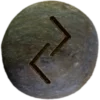Last Updated on May 25, 2025
Table of Contents


The Majestic Realm
Valhalla (Old Norse: Valhöll, pronounced “VAL-hawl”) is the hall of the slain, a grand and majestic realm in Norse mythology. It serves as the afterlife destination for chosen warriors who die bravely in battle. Odin, the Allfather, presides over Valhalla, ensuring it remains a place of honor, preparation, and feasting for those selected by Odin’s Valkyries to reside there. ![]()
Valhalla is described in the Grímnismál of the Poetic Edda and further detailed in Snorri Sturluson’s Prose Edda. The hall stands in Asgard (pronounced “AHS-gard”), the realm of the Æsir gods. It has a massive roof made of golden shields and walls adorned with spears. The entrance, guarded by the wolf Geri (pronounced “GEH-ree”) and the eagle Hraesvelgr (pronounced “HRAI-svel-gr”), symbolizes the might and vigilance of the hall’s residents.
The warriors who enter Valhalla, known as einherjar (pronounced “AYN-her-yar”), train daily in preparation for Ragnarök, the end of the world. During their training, they battle fiercely but are miraculously restored each evening. Afterward, they feast on the regenerating boar Sæhrímnir and drink mead flowing from the udders of the goat Heiðrún (pronounced “HAY-throon”).
Valhalla reflects the Norse values of bravery, honor, and camaraderie. It underscores the importance of preparation for future battles and cherishing the bonds between warriors. While it is a place of eternal glory, it also serves as a reminder of the inevitable doom at Ragnarök. This duality of triumph and fate embodies the balance central to Norse cosmology.
Runes Associated with Valhalla
The Elder Futhark rune Tiwaz (ᛏ, pronounced “TEE-wahz”) represents honor, justice, and bravery. It embodies the qualities of the einherjar and their dedication to Odin. ![]()
The rune Eihwaz (ᛇ, pronounced “AY-wahz”) symbolizes resilience, strength, and preparation for challenges. It reflects the training and readiness of those dwelling in Valhalla.
Its Importance in Asatru
Valhalla inspires Asatruar to honor bravery and strive for excellence in life. It symbolizes courage in the face of adversity.
The hall also emphasizes the value of community. The einherjar gather not only to train but to celebrate shared victories.


